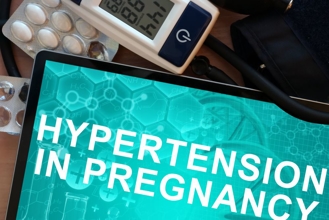 Outside of the usual discomforts. most women will enjoy and experience a normal and uncomplicated pregnancy. But what happens if your healthcare provider begins to notice that your blood pressure is getting higher as your pregnancy progresses? Most importantly, what does that mean for your unborn baby?
Outside of the usual discomforts. most women will enjoy and experience a normal and uncomplicated pregnancy. But what happens if your healthcare provider begins to notice that your blood pressure is getting higher as your pregnancy progresses? Most importantly, what does that mean for your unborn baby?
Gestational Hypertension
High blood pressure that develops in the second half of pregnancy is also known as gestational hypertension. An older term that your healthcare provider may use is caned pregnancy induced hypertension . Approximately 8-10% of women pregnant for the first time will develop gestational hypertension, and approximately 1 in 4 women with gestational hypertension will go on to develop preeclampsia.
Effects of Gestational Hypertension in Pregnancy
So what can happen to you and/or your unborn baby it you develop this condition? Gestational hypertension can affect blood perfusion of the placenta and subsequently the oxygenation of the baby. Some babies will not grow as wen because the placenta is not supplying oxygen or nutrients optimally. In the worst situation, this can lead to stillbirth.
Preeclampsia and its Effects on Pregnancy
What happens if your healthcare provider suspects you have preeclampsia? Preeclampsia is a condition that 25% of women with gestational hypertension develop and consists of a triad of symptoms: high blood pressure, protein spilling into the urine. and persistent swelling that does not go away. Again, condition affects blood flow to the placenta, which can lead to problems with fetal growth and even lead to fetal death. However, preeclampsia can also go on to affect other maternal organs such as the liver. kidneys. and nervous system
Monitoring your Unborn Baby for Safety
If your healthcare provider suspects that you have either condition, he/she will most likely start watching your pregnancy closer by checking extra labs and monitoring the baby weekly with a machine that listens for the baby’s heartbeat over a period of time (usually 20 min) and checks for any uterine contractions that may be occurring. This is called antenatal testing. The ultimate cure for gestational hypertension and preeclampsia is delivery. This is where you and your healthcare provider need to communicate well with one another. Make sure that you speak to your healthcare provider about what he/she plans to do so you both can develop a plan to have a healthy baby in the end.


